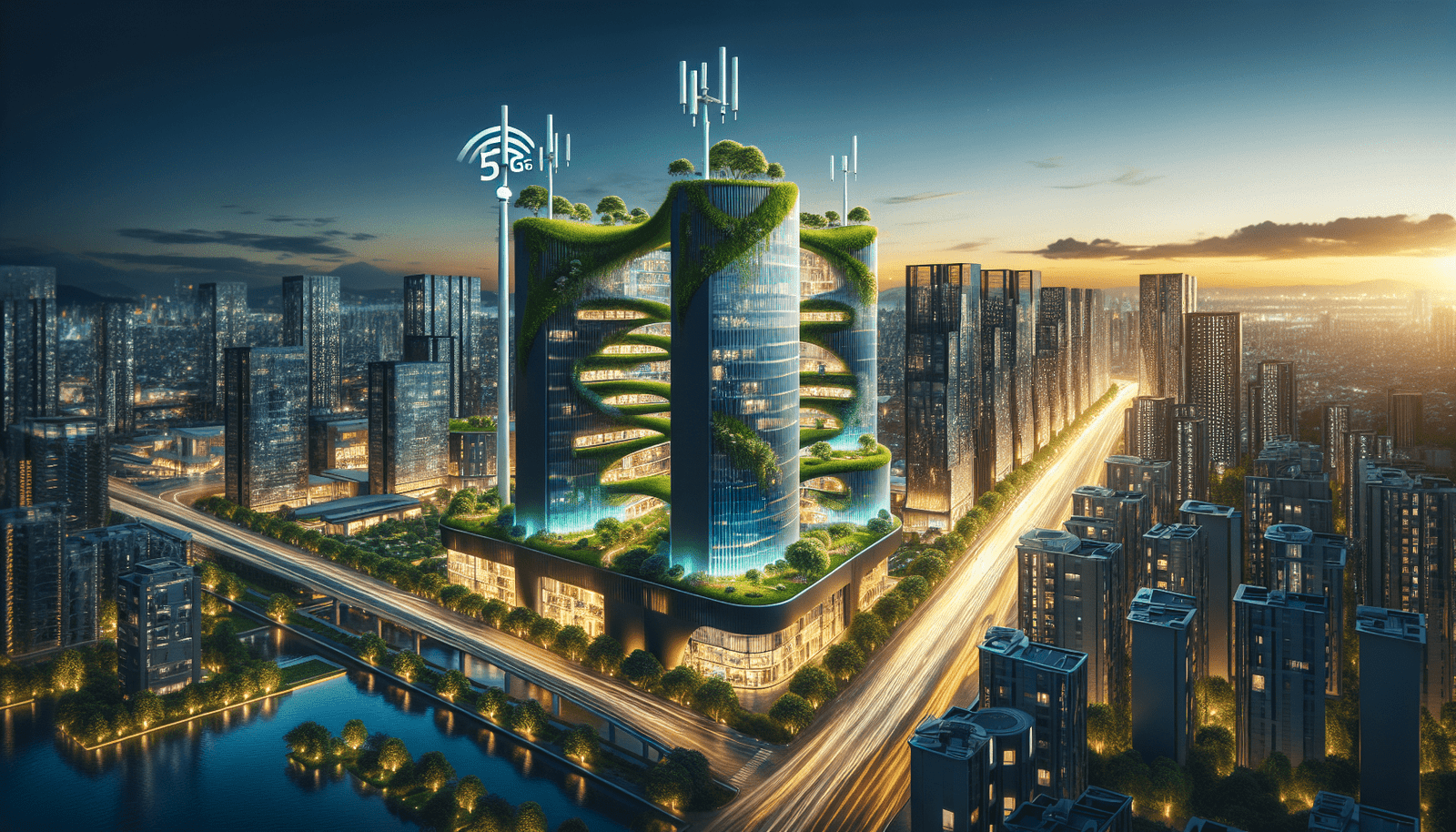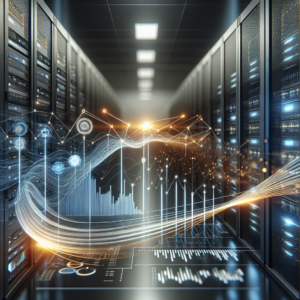What if I told you that the cities of tomorrow could be transformed completely by a technology that’s just on the horizon? That’s the promise of 5G technology in smart cities. With its lightning-fast speeds and ultra-reliable connectivity, 5G can reshape urban living and improve the quality of life for millions.
Understanding 5G Technology
5G, or fifth-generation wireless technology, represents a significant leap from its predecessor, 4G. But what does this mean in a nutshell? Rather than merely offering faster internet speeds, 5G enhances communication and connectivity between devices. It supports a greater number of connections in a smaller area, which is crucial for bustling urban environments.
Key Features of 5G
- Faster Speeds: I can stream high-definition videos or download large files in seconds. That’s a game-changer for cities where people are constantly on the go.
- Lower Latency: I’ve experienced lag time when gaming or using apps, but 5G can dramatically reduce that delay to nearly zero, creating a seamless experience.
- Increased Capacity: A typical 4G network can handle about 4,000 devices per square kilometer, while 5G can support up to one million devices in the same area, making it ideal for crowded cities.
- Enhanced Reliability: When a city’s infrastructure relies on connectivity, having a reliable network is essential. 5G promises improved reliability for critical communications.
The Smart City Concept
An intriguing aspect of future urban development is the concept of smart cities. But what exactly does being “smart” entail? It’s about integrating technology into the infrastructure and services of a city to enhance its efficiency, sustainability, and quality of life.
Features of Smart Cities
- IoT Integration: The Internet of Things (IoT) is an essential component of smart cities. It connects various devices, allowing them to communicate for improved efficiency and data collection.
- Sustainable Practices: Smart cities emphasize eco-friendly solutions, utilizing technology to reduce energy consumption and minimize carbon footprints.
- Data-Driven Decisions: With real-time data analysis, city planners can make informed decisions about resource allocation and urban development.
How 5G Enhances Smart Cities
As I think about the role of 5G in smart cities, it’s clear that this technology acts as a backbone for many smart city applications. Let’s delve into how 5G can elevate various sectors within a city.
Transportation Systems
Imagine a city where traffic flows smoothly without congestion. 5G technology can revolutionize transportation through connected vehicles, intelligent traffic systems, and real-time data sharing.
Intelligent Traffic Management
A 5G-enabled traffic management system can analyze real-time traffic patterns and adjust signals accordingly. By reducing wait times, it leads to a smoother driving experience and lower emissions.
Connected Vehicles
I often wonder how cool it would be for cars to communicate with one another and with traffic infrastructure. This could make driving safer and more efficient, preventing accidents before they happen.
Public Safety
The safety of citizens is always a priority in any city. 5G technology enhances public safety measures through advanced surveillance systems and real-time data analytics.
Smart Surveillance Systems
With 5G, surveillance cameras can stream high-definition video without interruption. Law enforcement can monitor activities in real-time, leading to quicker response times in emergencies.
Emergency Response
Imagine if emergency vehicles could receive live traffic updates as they respond to incidents. 5G can help prioritize their routes, ensuring that they reach their destinations faster.
Healthcare Innovations
In a smart city, healthcare becomes more accessible and efficient, thanks to 5G. It can facilitate remote consultations, real-time patient monitoring, and enhanced collaboration among medical professionals.
Telemedicine
I find the idea of speaking with a doctor from the comfort of my home incredibly appealing. 5G enables high-quality video consultations, making telehealth services more effective and reliable.
Remote Patient Monitoring
Patients with chronic conditions can be monitored in real time using connected devices. These devices can send critical health data to doctors, ensuring timely interventions when necessary.
Energy Management
One of the critical challenges cities face is managing energy consumption effectively. 5G can lead the way in sustainable energy solutions and smart grids.
Smart Grids
With 5G, energy consumption can be monitored and adjusted dynamically. This technology allows for efficient distribution based on real-time demand, helping to prevent outages and reduce waste.
Renewable Energy Integration
Cities are increasingly investing in renewable energy sources. 5G can facilitate the integration of these sources into the existing grid, allowing for a more cohesive energy management system.
The Role of Data in Smart Cities
With all this information circulating, it’s essential to understand how data plays a role in smart cities. 5G enables the collection and analysis of vast amounts of data from various sources, leading to informed decision-making.
Data Collection Strategies
To create an effective smart city, various strategies can be employed to gather data.
Sensors and IoT Devices
I can’t help but think of all the devices that can be connected, from smart streetlights to environmental sensors. These devices gather data on everything from traffic conditions to air quality.
Citizen Engagement
Engaging citizens in data collection can lead to better insights. Surveys and feedback platforms can allow residents to express their needs and experiences, providing valuable information to city planners.
Data Analytics and Visualization
Once data is collected, it requires analysis and visualization for it to be actionable.
Big Data Technologies
Big data technologies can handle the sheer volume of information collected in smart cities. By processing this data, I can glean insights into patterns and trends that inform urban development.
Visualization Tools
Presenting data visually helps make complex information more digestible. Dashboards that display real-time metrics allow decision-makers to understand city dynamics at a glance.
Challenges and Considerations
While I’m hopeful about the integration of 5G technology in smart cities, I recognize that challenges remain. Addressing these challenges will be crucial for successful implementation.
Infrastructure Limitations
One significant challenge is the existing infrastructure. Many cities lack the necessary framework to support 5G technology, requiring considerable investment.
Upgrading Existing Networks
Cities will need to upgrade their telecommunications networks to accommodate 5G. This may involve installing more antennas and upgrading fiber-optic cables.
Privacy and Security Concerns
As a tech-savvy individual, I’m aware that increased connectivity can lead to heightened privacy and security risks.
Protecting User Data
It’s essential to develop stringent protocols for data security to prevent unauthorized access and ensure that user data remains confidential.
Vulnerabilities in Connectivity
With more devices connected, the potential attack surface increases. Ensuring that the network is robust against cyber threats is crucial for maintaining trust in smart city initiatives.
Public Acceptance and Engagement
The success of smart cities depends largely on public acceptance. Engaging citizens in the planning process is vital to foster trust and collaboration.
Education and Awareness Campaigns
Cities can run campaigns to educate residents about the benefits of 5G and how it will enhance their daily lives. Informed citizens are more likely to embrace changes and innovations.
Future Perspectives
As I look to the future, the possibilities with 5G technology in smart cities are immense. This technology can lead to transformed urban landscapes, fundamentally altering how we interact with our environments.
Economic Growth and Job Creation
A successful rollout of 5G in cities can stimulate economic growth.
New Industries and Opportunities
5G can give rise to new industries focused on technology, sustainability, and urban development. As a result, job opportunities could increase for skilled workers.
Challenges Ahead
Even with the promise of 5G, cities will need to navigate various hurdles.
Regulatory Frameworks
Creating robust regulatory frameworks that address the nuances of smart cities and emerging technologies will be essential for smooth implementation.
Long-Term Vision
I envision a long-term perspective that focuses on sustainable urban development. Smart cities should not only be technologically advanced but also inclusive and equitable spaces for all citizens.
Conclusion
Reflecting on the potential of 5G technology in smart cities fills me with optimism. The integration of this transformative technology can lead to smarter transportation, enhanced public safety, more accessible healthcare, and smarter energy management. That’s quite a leap towards improving urban living!
Yet, it’s essential to remain vigilant in addressing the challenges associated with this technology. Through thoughtful planning, community engagement, and a commitment to privacy and security, I believe we can realize the full potential of 5G in smart cities.
As cities evolve, so do opportunities. I’m excited to witness this technological revolution and how it will reshape our urban environments for the better.






